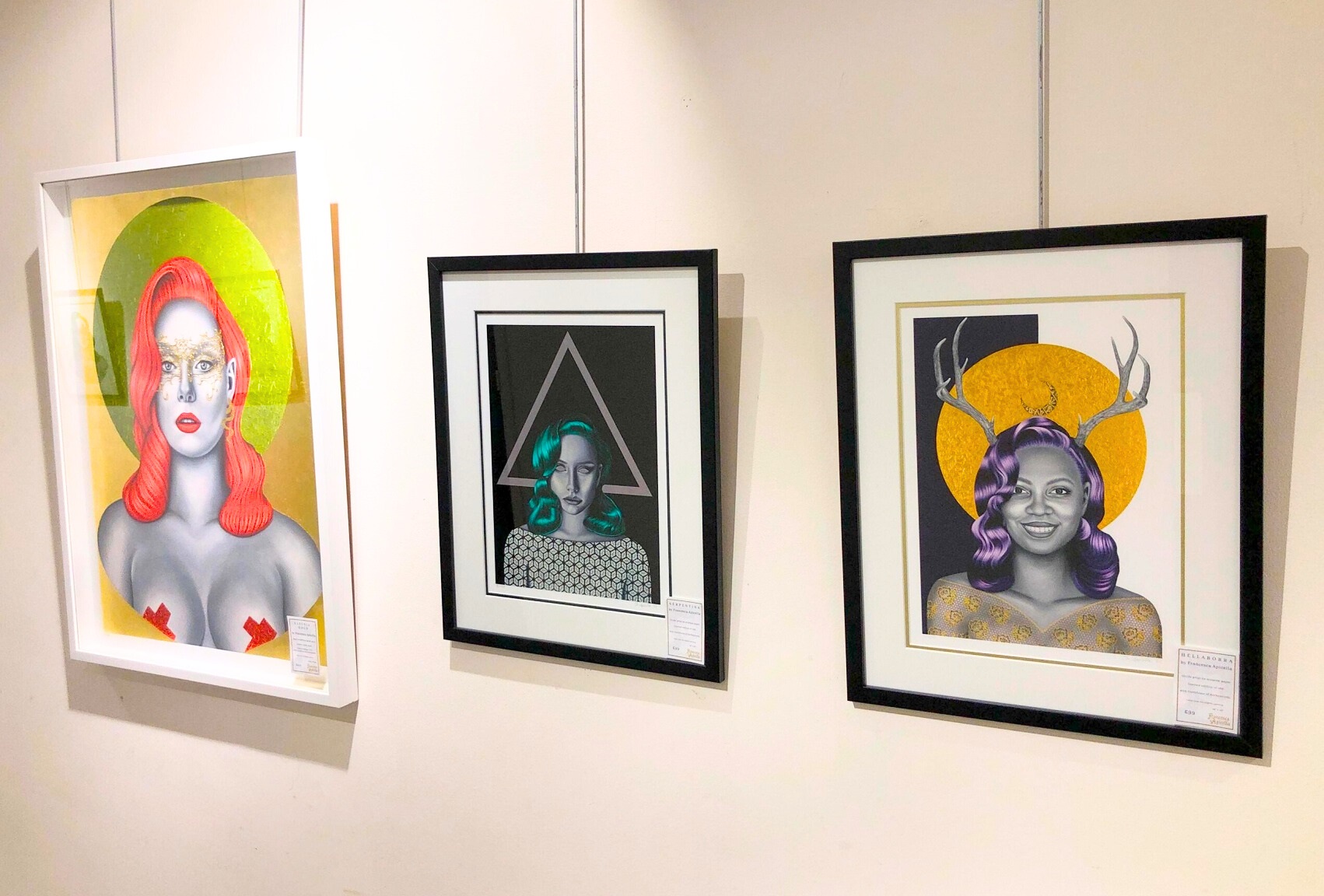Francesca Apicella Exhibition at the Tavistock Centre
This December, the Tavistock Centre is hosting an exhibition by Francesca Apicella, featuring her signature vintage-inspired portrait paintings, with a surreal, modern twist. This is my sixth exhibition as the art curator at the Tavi. I was excited that Francesca accepted my invitation, and had a pleasure to chat and learn more about her story.
How did your painting career start? How easy, or how difficult, was it for you at the beginning?
I found painting natural, it was quite shocking. I even shocked myself, to be honest. I was quite depressed, very unwell, I hadn’t been out of bed for five years. The first one I ever painted was Philautia, which is the red one, it’s a piece about self-love. My goal was to find some positivity in this body that no longer worked properly, that I felt like trapped in. By the end of it I was like, I have this amazing skill that I never knew I had! And it just took off from there. Having no connections, I found it quite difficult in the beginning. I joined local art groups, tried to boost my social media profile, and things are happening now, which is fantastic.
Who are the women in your portraits? Are they models, people you know, stock photos?
The women are mostly made up of lots of different references. For example, the red piece is taken from Victorian photography mixed with influences from the 1940s. There are a couple that are real people. Elshadaie is a London doctor who worked for A&E during the pandemic, straight out of medical school. The piece Lucretia is a lady who also has chronic illnesses herself.

I studied your website, and you’re a really busy artist, exhibiting constantly…
Thanks to my mum! A lot of times I am stuck in bed and she does it for me. It’s absolutely wonderful to have such a supportive mother. Every exhibition I’ve ever done, she’s either done it for me because I wasn’t well enough, or has done most of it and I came in when I was well enough. I couldn’t have done it without her.
3rd of December marks the International Day for People with Disabilities. Would you say there is sufficient representation of disabled artists on the scene?
There are so many artists with chronic health problems, and that fuels their art work. There’s a brilliant organisation that I’ve been part of which is Outside In. Their whole ethos is about representing artists with social circumstances that feel like barriers to the art world. I think it’s starting to become more widely represented in the mainstream.
Tell me more about your art practice. How often do you paint? Do you ever get an artist’s block and don’t feel creative?
Luckily, I don’t actually have artist’s blocks. My health issues are quite bizarre in that when I’m really unwell, it’s when I’m most creative. I have the weirdest dreams and come up with these crazy ideas. I write them all down and that’s when I formulate my new painting – when I’m stuck in bed. My brain is buzzing away, coming up with all sorts of weird and wonderful stuff. And then, when I’m having a well-day, which is couple of times a week, I can paint for a few hours. But I haven’t painted for a few months because I have been doing these exhibitions.
It’s very typical of artists to be at their most creative when going through something negative.
I think that’s my drive, absolutely.

Francesca Apicella is a self-taught artist living in West Sussex, UK. Her show at the Tavistock Centre explores her personal struggles with chronic illness through strong female icons, each representing a different part of her health journey. The exhibition runs until the end of the year. More about Francesca here.
